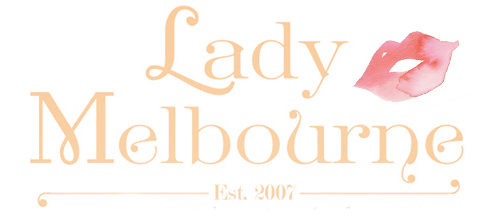Blogging: so complex yet such a seemingly simple thing to do. Encompassing a range from wild ramblings full of spelling mistakes to some of the finest independent thought you will find on the internet; there is no doubt that blogging has challenged and even transformed traditional forms of publishing.
The concept of paying bloggers for their content isn’t exactly new here in Australia, but as a mainstream practice it’s still yet to take hold. The trend towards paying bloggers in product or with invitations to events is far more prevalent, and it’s the next step in evolution to cash payment that the marketplace seems to be struggling with at the moment.
The overwhelming reaction to the FELLT network launching here in Australia wasn’t that it was a bad thing for bloggers to make money. Rather, it was the approach. Managers, agencies and in particular a closed network only available to a chosen few seemed to rub the fashion blogging community the wrong way.
Macala Wright says in her piece called How-To: Fix The Broken Relationships Between Bloggers and Brands on FMM that ‘there is no way to sugar coat this fact, but here it is: celebrities need agents, published authors need agents and professional athletes need agents; not bloggers.’
The notion of celebrity bloggers has meant that the lucky few at the top receive some amazing industry perks. The rest of the pack, who may still be incredibly popular but without the celebrity x-factor, receive the crumbs of these perks and opportunities… when they are lucky.
Coupled with this is the fact that many readers hold true to the belief that because blogging and self-publishing is independent, it should be free from advertising. Readers the world over have had to get used to the fact that a couple of years ago advertising started to replace badges on side bars.
Market places in the US, Europe and Asia have been paying bloggers appearance fees, advertising rates and tremendous amounts of in-kind product for years now. In this instance however I’m focusing on the Australian market because really, it’s like comparing apples and oranges.
Blogging has morphed from online diary, to amateur enthusiasts passionately writing about their chosen topic, to sites like Ugo.com (which started life as a blog) selling for $100 million in 2007. Blogs clearly have monetary value and thanks to increasingly sophisticated analytics content and bloggers themselves now have discernible dollar values.
The value of fashion blogging lies in the fact that not only does it set its own rules and create content utilised by the entire industry, including traditional print outlets, it has its own unique posse of celebrities who dictate global trends that transcend their own individual platforms. When I say the names Bryan, Tavi, Alix and Garance no doubt most fashion bloggers worth their weight in ASOS could churn out their full name and blog url.
I understand the struggle to recognise your worth as a blogger, and that when offers start to roll in it can be excruciating trying to negotiate when really, you have no idea what you are doing.
I’ve been on the receiving end of a major media company (who’s empire may or may not have been in the news and under investigation lately, ahem) who approached me to at first syndicate my content and then for me to create original content for one of their major fashion reality TV show’s blog. Negotiations were going well until they told me they had no budget to pay for my contribution. A global media empire. Has no budget.
Suffice to say, that little love in didn’t work out.
So on the one hand there is exploitation of original thought processes and content, vs. bloggers cashing in and making unreasonable financial demands.
And lets not forget in all this what makes the blogger and their content just so valuable in the first place: their readership.
Most people accept these days that a certain level of advertising activity is part and parcel of reading their favorite blog. When they feel as though they are being exploited however, that the blogger has sold out somehow or that the content has changed simply so that money can change hands the backlash can be swift and harsh.
Bloggers themselves read widely amongst the community, and it would be fair to say that some of the criticism of FELLT launching was that as a blogger who understands the inner workings of self-publishing the prohibitive nature of FELLT being entirely exclusive went against the community aspect of blogging.
Another criticism leveled was that the bloggers in question have been referred to as journalists and writers, and some of the “finest in all of Oceania” at that.*I note that this description has since dissappeared from the website at the time of publishing this post.
Simply put, bloggers are not journalists. Journalists can blog, doctors can blog, scientists and bakers can blog. You are a blogger just as the noun suggests. You don’t suddenly take on another craft or profession just because you blog. And why would you?
To quote Macala Wright again, “Journalists such as Cathryn Horyn (New York Times), Cate Corcoran (former WWD Technology Editor) and Jessica Michault are in a league of their own, and a writer such as myself would never dare compare them to any blogger or even myself.” Hear hear.
In conclusion what I think would be a positive outcome of this entire debate is a fostering of the larger fashion blogging community to come together, rather than fight it out on twitter.
We’re yet to see national meet ups (although I’m working on a little project that might just remedy that!) or a blogging network or body that represents bloggers with no affiliation to advertising.
It is in unity and inclusion that we can move forward and hopefully end up getting a fair go for bloggers and their readers Australia wide.
